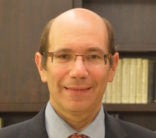Editor’s Note: This is the second in a series of essays on Zionist thinkers and doers, in Israel and outside, who are pioneering new understandings of what Jewish nationalism can mean in the 21st century. The first essay profiled Professor Ruth Gavison.
On Monday, June 27, Zionist activists gathered in Jerusalem to launch Rabbi Richard G. Hirsch’s new book, “For the Sake of Zion, Reform Zionism: A Personal Mission.”
At a time when we read constantly about the crises of Liberal Zionism and Reform Zionism, Rabbi Hirsch, at 85, has a youthful, hopeful message. He sees liberalism and Zionism as mutually reinforcing. He has devoted his life to proving that, as he writes, “American Jewish culture needs the stimulus that come from Israel, just as Israel needs the stimulus that comes from the diaspora.”
Rabbi Hirsch, a native of Cleveland, is both a liberal hero and a Zionist hero. The founding director of the Religious Action Center of Reform Judaism in Washington, D.C. from 1962 to 1973, he offered the Rev. Martin Luther King, Jr. free office space whenever the civil rights leader was in town. Rabbi Hirsch also helped pass the landmark Civil Rights Act of 1964, which was drafted in his center. This former Young Judean also established the Reform presence in Israel. He insisted on moving Progressive Judaism’s international headquarters to Jerusalem, which he deems Reform Judaism’s “most significant decision … in the 20th century.” As former refusenik Natan Sharansky, who now chairs the Jewish Agency to which Hirsch has devoted decades of service, notes, “At a time when so many think that human rights and Zionism pull in the opposite direction, here is a leader who proves by his own life that the struggle for Zionism and the struggle for human rights are one and the same.”
Rabbi Hirsch is not naïve. He knows the many tensions between Reform Judaism and Zionism. He explains that Reform Judaism “was grounded in hope for Jews in a gentile world,” while Zionism “was mired in hopelessness for Jewish survival in the gentile world.” Rabbi Hirsch has also led the long, frustrating fight for religious pluralism in Israel, demanding a “Jewish State,” meaning a state with a Jewish character not a state privileging Orthodox Judaism. In 1974, Rabbi Hirsch lectured Prime Minister Yitzhak Rabin about the importance of opposing “the politicization of religion and the religionization of politics,” while nevertheless remaining friends with the thin-skinned, hot-tempered, Rabin.
Rabbi Hirsch’s Zionism begins with peoplehood, refusing to limit Judaism to a religion without appreciating its national aspect. This “religionized” American Judaism, as he puts it, risks losing its family feeling, its activist impulse, its historic soul, encouraging assimilation. Rabbi Hirsch is grateful that, for all the problems, “Israel has restored balance and perspective to Reform Judaism, necessitating the strengthening of our ties with the Jewish people. Israel has enriched the consciousness of Jewish peoplehood, and, in doing so, has revitalized Jewish history and culture.”
Rabbi Hirsch also believes that Israel “is the testing ground for the determination of Jewish authenticity. If liberal Judaism can flourish only in a non-Jewish environment and not in a Jewish environment, then we will be like fish that can [only] live out of water.”
While cherishing what Israel has done for Reform Judaism, Rabbi Hirsch also sees what Reform Zionism has done — and can do — for Israel.
“Liberal Judaism projects a viable option of a Judaism that is relevant, egalitarian, aesthetic and moral,” he says, asserting that Liberal Judaism has combated religious coercion. Liberal Judaism, he believes, can help seemingly alienated, supposedly secular Israelis, return to tradition, and values, to foster “new kinds of creative Jewish cultural expression,” and create “a program of social action and advocacy” through Jewish frameworks, while bypassing the Orthodox rabbinate that alienated them originally.
Rabbi Hirsch lives by the dictum: “Every Jew is responsible for every other Jew.” He explains that “within the confines of the family, shared experiences and crises bind us together. Our obligations to members of the family dictate special relationships.” That special relationship has not stopped him from criticizing Israel. But he will not abandon Israel or Zionism because his starting premise is Jewish “interdependence.” He welcomes controversy as a consequence of caring and belonging.
“Since the nineteenth-century rebirth of Zionism,” Israel’s “supporters have been embroiled in controversy concerning the character, purpose, direction, and meaning of a Jewish state,” he explains. “Let the debates continue.”
For appreciating Jewish peoplehood not just as a glue that binds us together but as an engine driving us to greater heights; for using the very best of liberalism to make the United States and Israel fulfill their loftiest ideals; for championing Zionism as a vehicle of Jewish idealism, not just a Jewish insurance policy against bigotry; for being the kind of rabbi who ministers to the masses and lives his ideals every day; and for urging us, welcoming us, teaching us to “let the debates continue,” I designate Rabbi Dick Hirsch one of my favorite Zionists.
Gil Troy, a professor of history at McGill University in Montreal, is the author of numerous books, including “Why I Am a Zionist: Israel, Jewish Identity and the Challenges of Today.”
The New York Jewish Week brings you the stories behind the headlines, keeping you connected to Jewish life in New York. Help sustain the reporting you trust by donating today.





